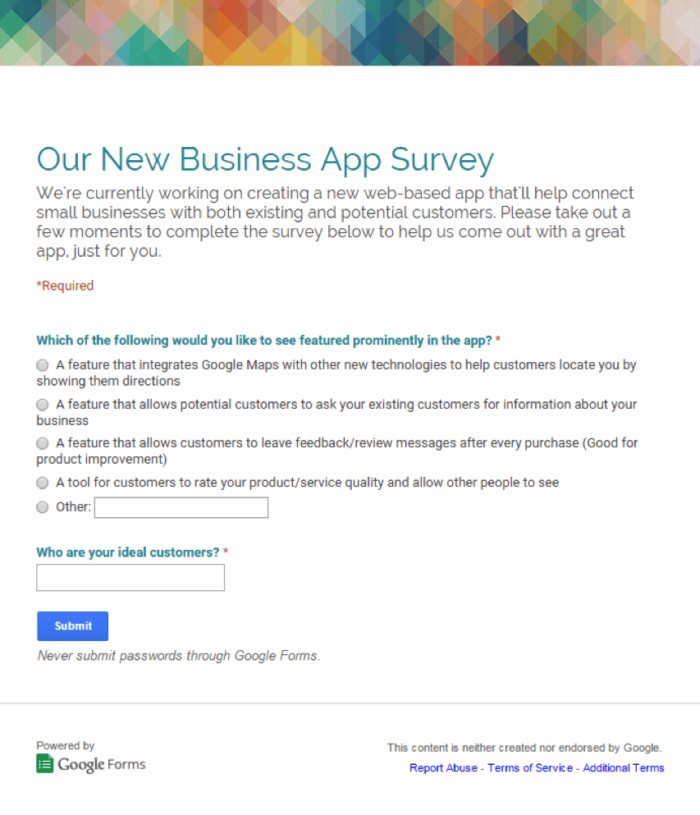Survey Questions for Market Research – with Examples

By Neil Patel
Are you wasting time and money because you don’t really know your customers? Creating products that your customers don’t want just doesn’t make sense. In any business, before you can meet your customers’ needs, you have to know:
- What are their problems?
- What solutions do they want?
- How can you introduce those solutions to them?
So, do you know your customers’ needs? If not, now is the time to analyze who your customers are and how you can give them what they want, before they seek answers elsewhere.
Luckily, doing this is easier than you may think. You can gain practically everything you need to make your customers happy by using survey questions for market research.
While there are several ways to gather customer information, customer surveys work and are one of the most effective methods to use when collecting this kind of data.
Surveys are great information-gathering tools, but to get accurate results, you have to ask the right questions in the right way.
We’ll look at the kinds of questions to ask. These questions will unlock your customers’ innermost thoughts, get you the answers you want, and even help you segment your customer base.
First, here are some general guidelines to help you prepare result-focused survey questions for market research:
1. Remember KISS (Keep It Simple, Stupid)
When it comes to surveying, simplicity is key.
Most people are pretty busy, so they don’t have time to answer overly complex, lengthy surveys.
This is why you have to make the questions easy to comprehend. Additionally, verify that your market research survey questions are easy to access and answer.
Brevity is important. A lengthy survey likely means high abandonment rates. High abandonment rates mean you may not get the best results because they create:
- A poor survey experience.
- Responses with incomplete information.
- Less representative final data.
You want people to respond excitedly to your questions, right? A 40-minute survey won’t support that.
The bottom line here is to remember the KISS principle and apply it.
Here’s a great example screenshot of a short survey:

Instead of using a detailed questionnaire, go with plain, easy-to-understand survey templates, and rather than asking complex questions, ask simple questions with a well-defined approach.
Asking complicated questions may confuse or even frustrate respondents. When that happens, two things are bound to follow: they will either not answer the question at all, or, if they do, they will give you unclear, inaccurate answers.
By complicated questions, I mean:
- Trick questions: These are purposefully deceptive and complex so respondents often answer in a specific way.
- Long questions: These are long, convoluted questions that provide so much information that it becomes difficult to comprehend and answer accurately.
- Confusing questions: These are simply questions that don’t make sense to the respondent.
Avoid these at all costs to engage participants and obtain accurate results.
When writing survey questions for market research, the main goal is to keep things …read more
Source:: Kiss Metrics Blog









